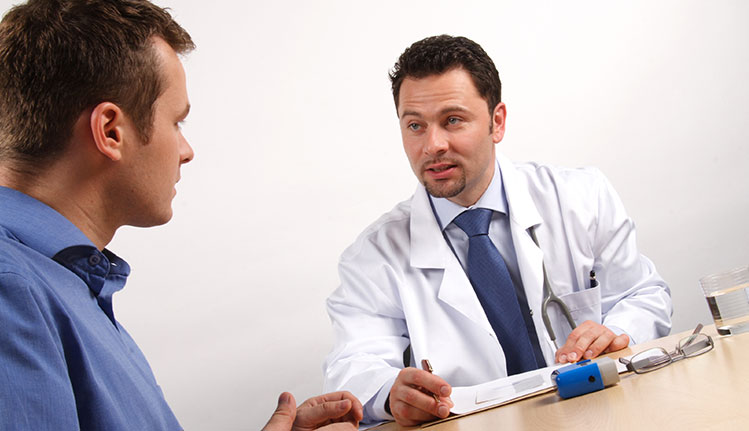Your treatment for urgency or urge incontinence will depend on the severity of your symptoms. Your GP or Healthcare Practitioner may first suggest some conservative methods which can help to control some of your symptoms. If these methods aren’t effective, then there are medications available to help relieve the spasms and contractions felt in the bladder. As a last resort, if your symptoms are very severe and is affecting your quality of life, you may be offered a surgical treatment. Your GP will be able to advise you on the best route of treatment for you.
Conservative Treatments
Bladder Diary/Retraining
Bladder retraining is a simple and effective method used for treating urgency and bladder problems. You will be asked to record your bladder habits on a chart and based on the pattern of that chart increase the length of time you empty your bladder by resisting feeling of urgency/frequency.
You can find out further information on Bladder Diary/Retraining by clicking here.
Lifestyle, Fluids And Diet
A few small changes to your lifestyle could help to alleviate urgency symptoms . It is important to make sure that you are drinking enough fluids to avoid bladder irritation and infection. It is advisable to limit your intake of fizzy drinks, caffeine and alcohol. For more advice on Lifestyle, Fluids and Diet click here.
Tibial Nerve Stimulation
Percutaneous Nerve Stimulation or PTNS as it is commonly known is a treatment that directly stimulates the nerves responsible for bladder control and is a method that can be used to treat frequency and urgency. To find out more about Tibial Nerve Stimulation click here.
Medicinal
Betmiga
Betmiga is an oral medication, which acts as a muscle relaxant and can be used to treat frequency and urgency if conservative methods haven’t worked. Some people experience side effects on this medication, you can find out how Betmiga works here.
Antispasmodic Medications
There are several medications available which can help prevent spasms of the bladder muscle, which can help reduce urgency and frequency; they belong to a group of medicines known as antimuscarinic or anticholinergic drugs. Below is a list of some medications that may be prescribed and links to more information.
- Darifenacin Hydrobromide
- Fesoterodine Fumarate
- Oxybutynin
- Oxybutynin Transdermal Patch
- Solifenacin Succinate
- Tolterodine
- Trospium Chloride
- Propiverine Hydrochloride
Surgical
Bladder Augmentation
If conservative treatments and medication have failed then you may be referred to a surgeon to discuss your options. A bladder augmentation is one surgical option available. There are several ways in which this operation can be performed and your surgeon will discuss the best option for you. This operation is considered major surgery and involves cutting the bladder open. You can find out further details about Bladder Augmentation here.
Botulinum Toxin
Botulinum Toxin or Botox as it is more commonly known is a powerful neurotoxin, which works by blocking the electrical impulses to a nerve, which makes a muscle contract causing muscle paralysis. This is a relatively new treatment licensed to treat bladder urgency It will usually only be considered if medications have failed to improve your conditions. You can find out more about Botox as a bladder treatment here.
Detrusor Myectomy
This is a major operation used to treat an overactive bladder with symptoms of urgency and frequency. It involves removing all or part of the outer muscle layer that surrounds the bladder. To find out more about the surgical procedure Detrusor Myectomy click here.
Sacral Nerve Stimulation
Sacral Nerve Stimulation or Sacral Neuromodulation (SNM) is a device that is implanted under the skin in the upper buttock. It helps by correcting the messages that run along our nerve pathways. SNM is performed in two stages, first you will undergo an evaluation, and then, depending on your results you will be offered the implant. Find out how Sacral Nerve Stimulation works by clicking here.
ALTERNATIVE
Acupuncture
Acupuncture is an ancient practice that believes that illness and pain occurs when a person’s ‘qi’ or energy flow becomes blocked. Inserting fine, sterile needles into certain points helps to unblock this energy flow. A research study has shown that having acupuncture along the sacral vertebra can suppress overactive bladders and symptoms of frequency and urgency. Find out more about acupuncture here.
Further information and downloads can be found in the downloads section. Living with a bladder condition can affect you emotionally and socially; sometimes it can help to speak to others who understand your situation. The Bladder & Bowel Community Forum is available 24 hours today and will allow you to connect with those who share your condition. Start your own topic today or just follow one that interests you.








